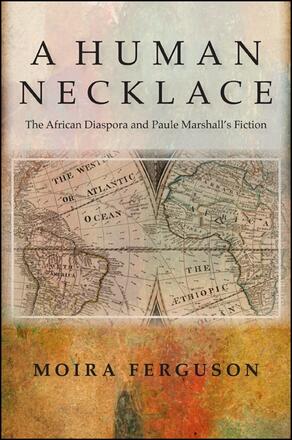
A Human Necklace
The African Diaspora and Paule Marshall's Fiction
Alternative formats available from:
Argues that Paule Marshall’s work collectively constitutes a multigenerational saga of the African diaspora across centuries and continents.
Description
From Brown Girl, Brownstones (1959) to The Fisher King (2000), Paule Marshall's novels, novellas, and short stories include a rich cast of unforgettable men, women, and children who forge spiritual as well as emotional and geographical paths toward their ancestors. In this, the first critical study to address all of Marshall's fiction, Moira Ferguson argues that Marshall's work collectively constitutes a multigenerational saga of the African diaspora across centuries and continents. In creating a space for her characters' interrupted lives and those of their elders and ancestors, Ferguson argues, Marshall trains a spotlight on slavery's wake and engages her fiction in the service of healing deep global wounds.
Moira Ferguson is Professor of English at New York University in London. Her books include Eighteenth-Century Women Poets: Nation, Class, and Gender, also published by SUNY Press, and Subject to Others: British Women Writers and Colonial Slavery, 1670–1834.
Reviews
"In sophisticated yet accessible discussions, Ferguson places Marshall's work in a variety of contexts that are at the center of diasporic and postcolonial studies. By producing this comprehensive examination of Marshall's fiction, she captures the way in which Marshall not only writes about diasporic experiences but, through the interconnected themes of her novels, is crafting a diasporic saga on the subject." — Sharon M. Harris, author of Dr. Mary Walker: An American Radical, 1832–1919